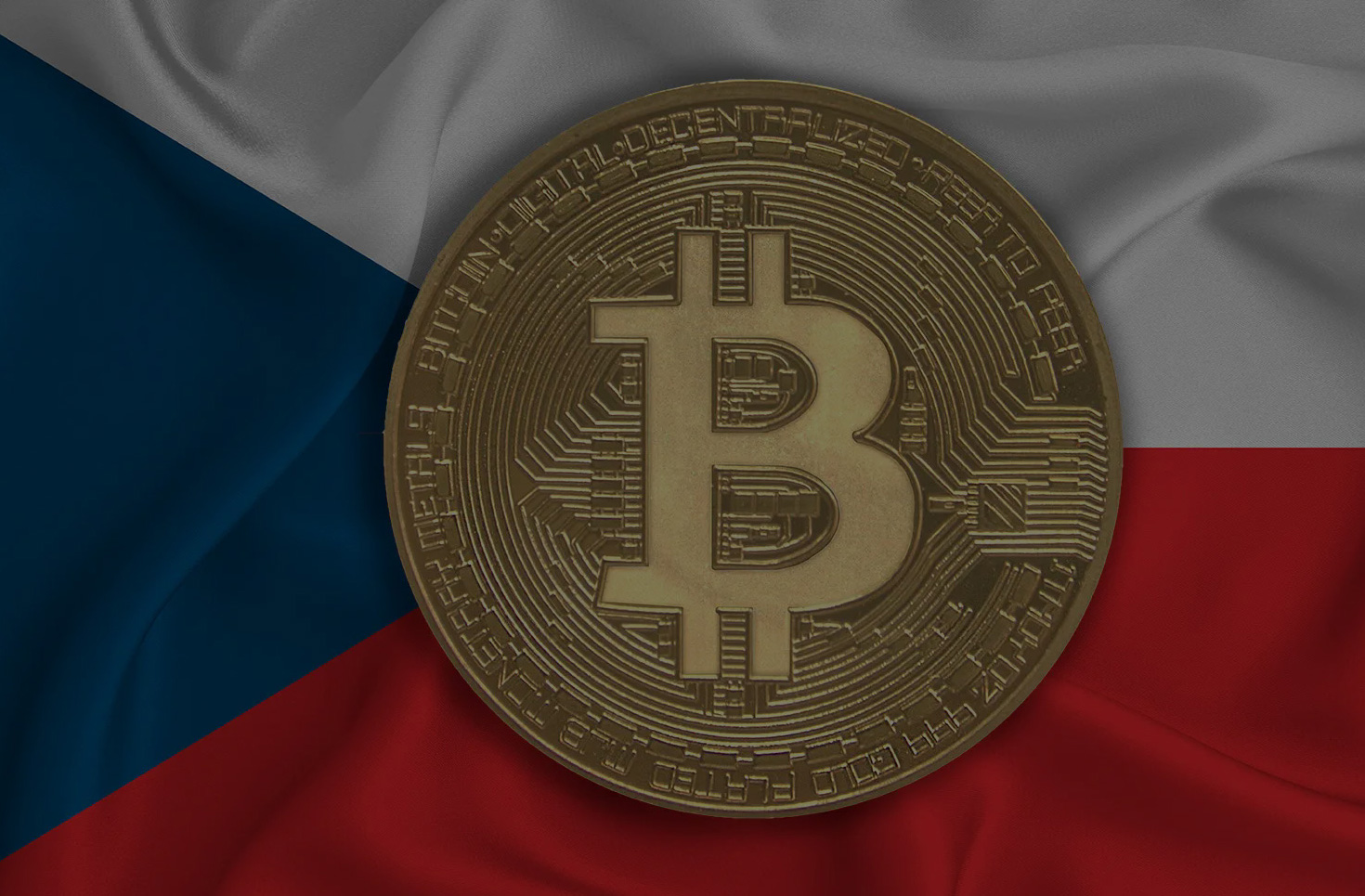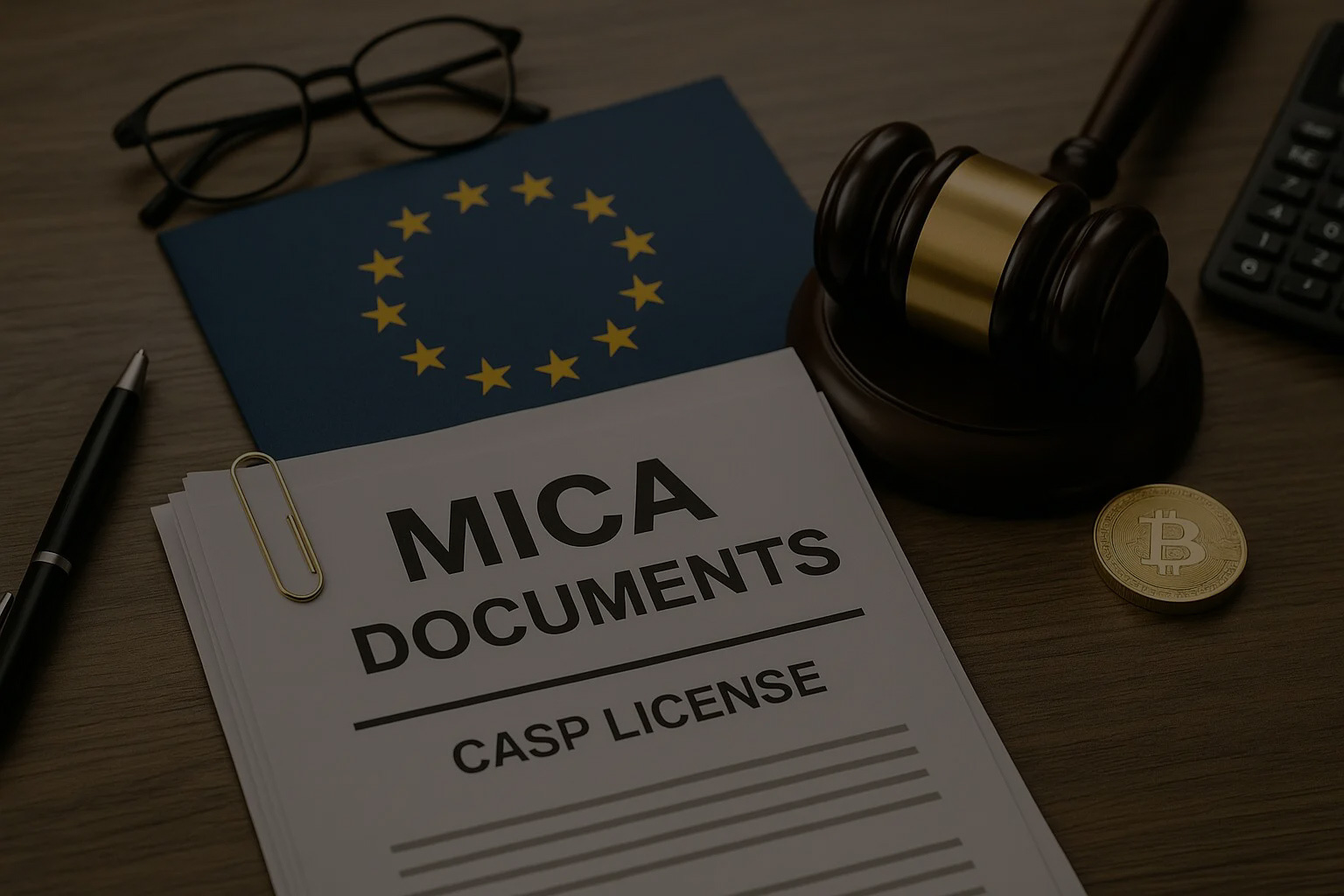CrowdfundingHaving experienced significant development over the past decade, cryptocurrencies have played a key role in expanding the potential of funding platforms. In the European Union (EU), crypto crowdfunding has emerged as an innovative funding method to help project owners reach out to a global network of investors. However, as with any financial activity involving digital assets, it requires strict regulation. This article explores the key aspects of crypto crowdfunding in the EU, focusing on the need to obtain a license and the relevant regulatory framework, including 2020/1503 regulations.
The rise of crypto crowdfunding in the EU
Integrating cryptocurrencies into crowdfunding platforms brings significant advantages, including:
Global coverage: Cryptocurrency transactions are not restricted by national borders, allowing project owners to attract global donors.
Lower transaction costsCryptocurrency transactions are generally less expensive than traditional payment systems, making fundraising more cost-effective.
TransparencyThe blockchain technology that underpins cryptocurrencies provides transparency and immutability, ensuring that all donations and transactions can be verified.
However, despite these advantages, the decentralized nature of cryptocurrencies also poses new challenges for regulators, especially when it comes to protecting investors and preventing financial crimes such as money laundering and fraud.
Does Crypto Crowdfunding in the EU Need a License?
Whether a license for crypto crowdfunding is required depends on the nature of the specific crowdfunding campaign and the type of assets involved. Traditional crowdfunding platforms operating in the EU must comply with the relevant regulatory framework, which now also applies to cryptocurrency-related platforms.
The EU's Crowdfunding Service Providers Regulation (ECSPR), introduced under the 2020/1503 Regulation, sets out the rules for operating crowdfunding platforms in the EU. The regulation aims to establish a unified set of standards to improve transparency, enhance investor confidence and ensure fair competition among member states.
Key points regarding licensing requirements:
Scope of application of regulations2020/1503 regulations apply to traditional and cryptocurrency-based crowdfunding platforms that facilitate investments in exchange for shares, securities, or loans.
Licensing ObligationsCrowdfunding service providers, including those operating in the cryptocurrency space, must obtain authorisation from the relevant National Competent Authority (NCA) of the EU country in which they are located. Once authorised, they can provide services throughout the EU without the need for an additional licence.
License threshold: The regulation establishes a threshold of 5 million euros for crowdfunding campaigns over a 12-month period. If a platform exceeds this amount, it must obtain a license. For smaller platforms, less stringent regulatory requirements may apply,They will still need to comply with anti-money laundering (AML) and counter-terrorism financing (CTF) rules.
EU 2020/1503 Regulation: A Framework for Investor Protection
The introduction of the European Crowdfunding Regulation (ECSPR) in 2020 marks a major advance in regulating crowdfunding activities across the EU. Its main objectives are to promote market transparency, protect investors and promote the growth of crowdfunding platforms. The regulation is particularly important for crypto crowdfunding as it ensures that cryptocurrency-based platforms follow the same rules as traditional platforms.
Important provisions of 2020/1503 regulations:
Due Diligence: Platforms must conduct due diligence on projects seeking financing to minimize risk to investors. This includes providing clear and accurate information about the project, its risks and potential returns.
Investor protectionThe regulation contains specific measures specifically aimed at protecting retail investors, such as limiting the amount of money they can invest and requiring platforms to assess their knowledge and experience in crowdfunding.
Transparency and disclosurePlatforms must ensure that all information about fundraising activities is transparent, allowing investors to make informed decisions. This includes providing detailed information on the use of funds, business plans and project risks.
Cross-border services: Once licensed, the platform can offer its services throughout the EU through the passport system. This simplifies the process of scaling to multiple markets without having to comply with regulations in multiple countries.
The Impact of Crypto Crowdfunding Regulations
The introduction of 2020/1503 regulations is an important development for the crypto crowdfunding industry. By including cryptocurrency-based platforms in the regulatory framework, the EU aims to level the playing field between traditional and digital assets, while protecting investors from the risks inherent in the crypto market.
Challenges for crypto crowdfunding platforms:
Compliance burdenCrypto platforms must go through complex licensing processes and meet stringent regulatory requirements, which can increase operational costs.
AML and CTF complianceCryptocurrency transactions are often associated with anonymity, which makes it more difficult for platforms to meet AML and CTF requirements. Platforms must implement strict KYC (Know Your Customer) procedures to verify the identity of donors.
Volatility of Crypto Assets: The high volatility of cryptocurrencies creates additional risks for project owners and investors. Platforms have a responsibility to inform investors of these risks and provide clear strategies to mitigate them.
Intersection with MiCA Regulation (2023/1114)
In addition to the obligations under 2020/1503 regulations, crypto crowdfunding platforms need to be aware of the 2023/1114 Crypto Asset Market (MiCA) regulations. MiCA has introduced a comprehensive regulatory framework for crypto assets within the EU, aiming to standardize rules for the issuance and trading of crypto assets.
For platforms that conduct crypto crowdfunding, it is crucial to assess whether their business model may overlap with MiCA's regulations. In particular, when it comes to utility tokens or other crypto assets that may be classified by MiCA as regulated financial instruments, additional licensing and compliance may be required.
Failure to account for potential overlap with MiCA could result in significant legal and financial consequences, including the need for further licensing or facing penalties for non-compliance. Crypto crowdfunding platforms should therefore undergo a thorough legal review of their business model to ensure that they are not inadvertently included in the MiCA's scope of application or face additional regulatory obligations.
By proactively complying with 2020/1503 regulations and MiCA, platforms can avoid legal pitfalls and ensure that they comply with all relevant EU regulations, thereby increasing their credibility and strengthening investor trust.
Conclusion
Crypto crowdfunding presents exciting opportunities for startups, entrepreneurs and investors, especially in borderless markets like the European Union. However, the regulatory environment is constantly changing, and platforms must ensure that they meet licensing and regulatory requirements in order to operate legally. 2020/1503 regulations provide the necessary framework for investor protection and transparency, while also allowing platforms to expand across the EU.
For those who wish to participate in crypto crowdfunding, it is essential to understand the regulatory environment. While obtaining a licence may seem complicated, it is a key step in building credibility in the European market and ensuring long-term success.
-

The Slovak Republic is an emerging developing jurisdiction due to its simple regulation and clear process for obtaining a cryptocurrency license. We will guide you through the necessary steps and provide you with a successful outcome.
-

Located in southern Europe, Bosnia and Herzegovina (B & H) is a country with a developed economy, promising prospects and excellent business conditions. The country is open to international economic cooperation, trade and foreign investment, as evidenced by successful projects in various sectors. Of particular interest are the information technology and crypto industries, which have numerous advantages due to the favorable investment climate.
-

Today, Poland is a modern European economic powerhouse, eager to develop in all areas of life, including the opportunity to implement cryptocurrency projects for individuals and legal entities around the world.
With our assistance, you can easily conduct cryptocurrency activities within the EU under stable Polish law.
-

Estonia was one of the first jurisdictions in the EU to popularize cryptocurrency licenses.
One of our offices is located in the city of Tallinn, and we actively help clients to obtain and adjust cryptocurrency licenses issued by Estonian regulators, including ensuring full compliance with MiCA regulations.
We stand ready to provide comprehensive consultation and prepare all necessary documents to ensure that your company meets the requirements of MiCA when registering and operating CASP (Crypto Asset Service Provider) in Estonia.
-

We offer a unique and highly advantageous opportunity in the market, which includes the registration of a new VASP licensed crypto company and a CASP licensed company in the Czech Republic. Upon completion of the program, both registered VASP/CASP companies can begin operations immediately. It is also possible to acquire existing companies and obtain the necessary operating licenses.
The Czech Republic's cryptocurrency license is an effective tool for both newly established cryptocurrency companies and existing projects. We provide a guarantee and indicate in the contract!
-

Under the updated regulatory framework from 29 April 2025, existing VASP licensees are allowed to continue operating until 1 January 2026. We strongly recommend starting the CASP registration application process as soon as possible.
After registering a company in Lithuania and obtaining a cryptocurrency license, you can legally provide cryptocurrency exchanges and asset custody services in the EU and globally, ensuring full compliance with European regulations.
With our assistance, more than 500 clients have obtained licenses, many of whom are successfully expanding their cryptocurrency business in the EU and international markets.
Lithuanian cryptocurrency licenses are an important asset for any company in the digital asset space, providing credibility, regulatory clarity, and access to European and global markets.
-

Get a MiCA encryption license to ensure your encryption business is legally compliant in Europe.
Crypto licenses under MiCA are essential for Crypto Asset Service Providers (CASP) to operate legally in the EU. It ensures full compliance with ESMA regulations, allows access to the European market and increases credibility.
We assist in obtaining MiCA licenses in various jurisdictions across Europe, providing regulatory advice, policy drafting, license application support and ongoing compliance assistance. Our expertise ensures that companies successfully pass MiCA requirements, reduce risk and simplify the EU approval process. Ensure compliance and expand your encryption business with our comprehensive CASP licensing services.
-

With a package of documents fully compliant with the Markets in Crypto-Assets Regulation (MiCA), you are guaranteed a place in the regulated crypto market in Europe. The European Union has pioneered the introduction of a unified cryptocurrency licensing framework, offering Crypto Asset Service Providers (CASP) the opportunity to operate seamlessly on a global scale. With advantages such as passport rights, legal clarity and enhanced access to institutional partners, the EU is now the leading jurisdiction for regulated digital asset businesses worldwide.
At Rengang Yongsheng, we provide end-to-end assistance to help you prepare and submit key documents to apply for a CASP license under MiCA regulations. Whether you are applying from scratch or adjusting your existing license, our experts can provide you with tailored CASP adjustment documents and strategic guidance.
-

Fall 2023 Top Cryptocurrency Jurisdictions! Enjoy our exclusive offer!
-

AdamSmith Law Firm is your professional partner in the process of obtaining a cryptocurrency license in Georgia. Georgia has an advanced regulatory environment and is an ideal place to establish a cryptocurrency business. Our experienced legal team provides end-to-end support to ensure a smooth and efficient licensing process.
-

El Salvador was the first country to recognize Bitcoin as legal tender, creating an enabling environment for cryptocurrency businesses.
Whether you are an entrepreneur looking to start a cryptocurrency business or an established company looking to expand, obtaining a cryptocurrency license in El Salvador can give you a significant advantage.
Rengang Yongsheng's experienced team will help you complete this process efficiently and confidently.
-

Costa Rica is rapidly emerging as a major destination for startup crypto companies, offering a highly flexible legal framework, attractive tax incentives, and a streamlined company formation process that ensures easy entry for entrepreneurs.
Register a crypto company in Costa Rica from 3000 euros.
Start setting up a crypto company in Costa Rica today.
-

Start your cryptocurrency business with confidence in one of the world's leading financial centers
The UK is the jurisdiction of choice for registering cryptocurrency businesses, offering fast approval timelines, a competitive tax structure and a cryptocurrency-friendly regulatory environment. Although the UK is no longer part of the EU, it still has strong international recognition and direct access to global financial markets. Its streamlined licensing process and clear compliance standards make it an attractive destination for entrepreneurs seeking legal certainty and business growth.
However, without local expertise, navigating the regulatory environment can be complicated. Rengang Yongsheng provides end-to-end assistance with the UK cryptocurrency licensing process, guiding you through legal requirements, documentation and communication with the Financial Conduct Authority (FCA). With the support of professionals, you can get a license in 2 to 8 weeks, depending on your business model and readiness.
-

In Canada, businesses that provide financial services such as currency exchange, money transfer, virtual currency transactions and similar activities must register as a Money Service Business (MSB) or a Foreign Money Service Business (FMSB) with the Financial Transactions and Reports Analysis Centre of Canada (FINTRAC) prior to commencing operations.
-

After registering a company and obtaining a cryptocurrency license in Seychelles, you can legally provide digital asset exchanges, cryptocurrency storage and other virtual asset activities in one of the most flexible and recognized offshore jurisdictions.
With our help, more than 500 customers have successfully obtained VASP licenses in other countries and are operating with confidence in the international crypto environment.
The VASP license issued by the FSA regulatory authority in Seychelles is a reliable legal tool to help you grow your business, build confidence among investors and partners, and demonstrate your compliance with AML/CFT requirements.
-

Saint Vincent and the Grenadines (SVG) is fast becoming the destination of choice for crypto entrepreneurs around the world. Saint Vincent and the Grenadines has a flexible regulatory environment, streamlined company formation processes and attractive tax incentives, providing you with an ideal platform to launch and manage your crypto business with a minimum of bureaucracy.
At Rengang Yongsheng, we are committed to simplifying this process for you. We're focused on guiding you through SVG's company formation process to ensure your crypto business is efficiently established and successful.
Start your crypto license for Saint Vincent and the Grenadines (SVG) today.
-

With its friendly regulatory framework and favorable business environment, Panama has become the preferred offshore jurisdiction to establish crypto companies.
Registering a cryptocurrency company in Panama costs only € 4,500 for a maximum of 2 weeks.
Start the process of obtaining an encryption license in Panama immediately.



 Your current location:
Your current location:















